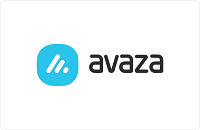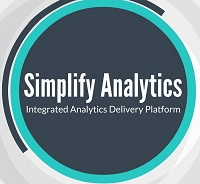Indeed, the majority of consulting software is made to work on a variety of platforms and devices. This implies that the program is compatible with all of your devices, including desktops, laptops, tablets, and smartphones, irrespective of the operating system. This gives you flexibility and convenience by enabling you to work whenever and wherever you choose. Before making a purchase, make sure to see if the software in question contains this capability.
List of 20 Best Consultancy Software
Brightspace, a highly effective learning management system, is designed to simplify complex tasks and boost efficiency for educators and learners. Its intuitive interface and advanced capabilities streamline processes and facilitate the delivery of p...Read More Brightspace
EduCtrl, an advanced management tool catered to education consultants and training institutes. This cloud-based CRM software maximizes productivity for staff and streamlines business operations. EduCtrl allows education professionals to easily handle...Read More EduCtrl
Amplifyre is digital analysis tool designed to enhance your businesss online potential. Our personalized approach involves a thorough assessment of your company to uncover areas for growth. Our team of consultants provides valuable insights and recom...Read More Amplifyre
One Solution by Taxmann - your one-stop solution for all tax compliances. This comprehensive software makes ITR and TDS tasks a breeze and can be easily accessed on your system. With just one click, streamline your tax processes and bid farewell to m...Read More Taxmanns One Solution
Scoro is budget management software that combines CRM and project management features. It simplifies financial management by centralizing all financial data in one platform. This allows for easy budget planning, generation of financial reports, invoi...Read More Scoro
Meritto - a software designed to maximize the effectiveness of essential teams in educational organizations, including Sales, Marketing, Admission, Finance, and Operations. Our comprehensive solutions are customized to meet the individual requirement...Read More Meritto
Soutron, a software with 30 years of experience in library and knowledge management, is designed to adapt to your organizations evolving requirements. Our fully managed and supported system offers extensive customization options, ensuring the utmost...Read More Soutron
10,000ft - a software that will revolutionize the way your teams work together. By simplifying task management, prioritizing projects, and maximizing resource usage, this tool ensures efficient project completion within set deadlines. With its robust...Read More 10,000 ft
Agentcis is a top-notch CRM software that stands out from the rest. Our secure, cloud-based SAAS platform is hosted on AWS (Amazon Web Server), ensuring optimal performance for all tasks related to education and migration agencies. This innovative so...Read More Agentcis
Ellucian Education ERP is a tailor-made solution for higher education institutions. This all-inclusive platform automates admissions, streamlines student access, improves record management, increases faculty engagement, and tracks key operational met...Read More Ellucian Education ERP
Avaza is a project management software that promotes seamless teamwork and productivity. Its adaptable features can be customized to suit the unique needs of any company, making it incredibly versatile. With Avaza, businesses can optimize their workf...Read More Avaza
Bullhorn ATS is a recruitment solution. With unparalleled speed, it outperforms competitors by 40%, leading to a remarkable 43% boost in placements. Its innovative mobile software enables easy viewing and updating of candidate details, note-taking, a...Read More Bullhorn ATS
BigTime solution for automating your professional services. Say goodbye to manual processes with features such as time and expense tracking, billing, and invoicing. With seamless integration with QuickBooks Online and Desktop, data management is secu...Read More BigTime
Workzone - the perfect solution for a seamless balance between functionality and user-friendliness. With almost 20 years of experience, Workzone guarantees long-term success with unlimited training and personalized assistance. Discover the true power...Read More Workzone
SAP SuccessFactors, a cloud-based HR software perfect for small businesses. It provides essential features such as payroll, applicant tracking, onboarding, learning management, performance evaluation, goal setting, and compensation management. With i...Read More SAP SuccessFactors
QuickBase BPM is business process management tool that promotes teamwork, encourages collaboration, and automates essential business processes. It empowers you to create personalized solutions tailored to your organizations requirements and streamlin...Read More QuickBase BPM
Simplify Analytics is a retail analytics software for maximizing your business potential. Keep a close eye on key performance indicators and gain valuable insights to accelerate growth. With our advanced analytics, you can leverage loyalty, campaign,...Read More Simplify Analytics
eSUB is the top choice for subcontractors seeking efficient management of construction projects. Our cloud-based software allows for seamless connectivity and real-time updates from onsite locations. Simplify your construction process with our extens...Read More ESUB
Mentorwise is a mentorship software designed for organizations and individuals looking to establish successful mentorship programs. Our intuitive platform offers a wide range of tools, such as task management and progress monitoring, to facilitate th...Read More Mentorwise
Passivereferral is a recruiting software that revolutionizes your hiring process. With our advanced tools, you can easily track and manage potential candidates in your database, freeing up your time to focus on crucial aspects of hiring. Streamline y...Read More Passivereferral
Learn More About Consultancy Software
- What Is Consultancy Software?
- What Are The Recent Trends In Consultancy Software?
- Benefits Of Using Consultancy Software
- Important Factors To Consider While Purchasing Consultancy Software?
- What Are The Key Features To Look For In Consultancy Software?
- Why Do Businesses Need Consultancy Software?
- How Much Time Is Required To Implement Consultancy Software?
- What Is The Level Of Customization Available In Consultancy Software?
- Which Industries Can Benefit The Most From Consultancy Software?
- Conclusion
What Is Consultancy Software?
A strong tool for streamlining processes and assisting firms and organizations in making data-driven decisions is consultancy software. This kind of business software offers specific features and tools for a variety of consulting services, including financial, HR, and management consulting, among others.
Fundamentally, consulting software acts as a central platform for consultants to track project progress, organize and analyze data, and work together with clients and team members. To help consultants provide high-quality services effectively, it provides a number of functions, including project management, CRM, reporting and analytics, and document management, among others. The capacity of consulting software to automate repetitive operations and workflows is one of its main advantages; it frees up consultants to concentrate on higher-value endeavors that propel company expansion.
In addition to saving time, this boosts output and elevates the whole customer experience. Additionally, consultants can capture and maintain important data, like financial records, project details, and client information, with the use of consultation software. Making data-driven decisions, predicting future opportunities, and identifying trends can all be accomplished by analyzing this data.
It is crucial to take into account elements like industry-specific functionality, scalability, cost, and ease of use when searching for consulting software. Selecting the choice that best suits the particular requirements of your consulting business is essential given the abundance of possibilities on the market.
What Are The Recent Trends In Consultancy Software?
The demand for effective and efficient consulting services is growing along with organizations and sectors. Significant improvements have also been made to consultant software in recent years to keep up with the shifting landscape. The following are some recent developments in consulting software that purchasers should be aware of:
1. Cloud-Based Solutions: Many consulting software vendors have switched to cloud-based solutions due to the growing popularity of remote work and the requirement for real-time collaboration. This makes their services more flexible and accessible for clients by enabling consultants to access and work on projects from any location at any time.
2. Artificial Intelligence: It has grown in popularity to integrate artificial intelligence (AI) into consulting software. AI-powered solutions are able to evaluate data, spot trends, and forecast outcomes, giving advisors useful information for their customers. Additionally, this lessens the time and effort required for data analysis, freeing up consultants to concentrate on offering strategic counsel.
3. Data Visualization: Apart from artificial intelligence, data visualization has emerged as a crucial component of consulting software. It makes it easier for clients to understand the insights and make wise decisions by enabling consultants to convey complex facts in an aesthetically pleasing and understandable manner.
4. Mobile Apps: Many consulting software companies now provide mobile apps for their platforms, allowing consultants to work while on the go thanks to mobile technology. From their mobile devices, consultants can use these apps to interact with team members, communicate with clients, and access project information.
5. Integration With Other Tools: The most effective consulting software is that which can easily integrate with other vital company tools and processes. This enables a more simplified and effective consulting process and includes project management software, communication tools, and even accounting systems.
Benefits Of Using Consultancy Software
Numerous advantages provided by consultation software can significantly increase the efficacy and efficiency of consulting organizations. This specialist program is made to cater to the unique requirements of consulting experts, from automating procedures to simplifying communication. We'll go over the main advantages of adopting consulting software and how it can help your organization in this buyer's guide.
1. Better Project Management: Simplifying project management procedures is one of the main benefits of consulting software. This software enables consultants to efficiently manage their projects and produce outcomes on schedule thanks to features like task management, time tracking, and resource allocation. Furthermore, the program offers real-time project status information, enabling consultants to advise customers and make well-informed decisions.
2. Centralized Information: By centralizing all client and project data, consulting software removes the need for manual data management. This lowers the possibility of mistakes and duplications in addition to saving time. With all the information in one location, consultants can quickly and easily access it, giving them the ability to serve customers more effectively and individually.
3. Improved Communication: Success in consulting depends on effective communication, which is made possible by consultation software, which provides a range of channels for communication, including video conferencing and instant messaging. Consultants can maintain contact with team members and clients regardless of time zones and location by utilizing the program for all communication. This guarantees that everyone is in agreement and enhances teamwork.
4. Data Analysis And Reporting: One of the main advantages of consulting software is its capacity to gather and examine data, offering insightful information for making decisions. In order to improve the caliber of their services, consultants can utilize this data to spot trends, patterns, and areas that need work. Furthermore, the software provides customisable reporting features that let consultants provide customers with thorough and eye-catching reports.
5. Enhanced Productivity And Efficiency: Consulting software may significantly increase the productivity and efficiency of consulting organizations by automating manual operations and optimizing procedures. Instead than wasting time on administrative duties, consultants can concentrate on activities that bring value. In addition to raising the caliber of their work, this enables them to take on more tasks and make more money.
6. Improved Client Management: Features like client portals, which enable the safe and centralized storage of customer data, are provided by consulting software. This enhances data security and makes it possible for consultants to offer clients individualized service. Clients may contact with consultants, see project status, and obtain critical documents through their own portal, which improves the client experience in general.
Important Factors To Consider While Purchasing Consultancy Software?
It's crucial to thoroughly evaluate your unique requirements and examine a number of variables when thinking about investing in consulting software to make sure you're getting the best deal for your company. The following are important factors to take into account while making a purchase decision:
1. Specific Features And Functionalities: Identifying the features and functionalities that your company needs is the first step in choosing the best consulting software. To make sure the software you select satisfies all of your demands, compile a list of crucial features and rank them according to your company's needs.
2. Scalability: Your consulting software should be able to grow with your company. Seek out a system that can grow with your company and change to meet your evolving needs. This will spare you the trouble and expense of later needing to buy fresh software.
3. Capabilities For Integration: Your consulting software should be able to easily interface with your current procedures and systems. This will ensure a seamless transfer and prevent any interruption to your ongoing business operations. Seek out a system that provides simple integration with well-known platforms and tools.
4. User-Friendliness: Your team's effective use and adoption of software depends on its user-friendliness. Make sure the solution you choose has features that are easy to customize, an intuitive interface, and easy navigation. This will guarantee that your team doesn't require a lot of training to operate the software efficiently.
5. Cloud-Based Vs. On-Premise: Think about which software type is more appropriate for your company. On-premise solutions offer superior data control and protection, but cloud-based software gives greater accessibility and flexibility. Select the option that best suits your preferences and company needs.
6. Cost: When investing in consulting software, your budget is a crucial factor. Even though pricey software could have sophisticated capabilities, it might not be the ideal option for your company. Seek out a solution that works inside your budget and provides good value.
7. Customer Support: In the event that you run into problems or require help with the software, having dependable customer service is crucial. To guarantee a seamless user experience, look for a system that provides quick and responsive support channels, such live chat, email, or phone. When buying consulting software, carefully weighing these aspects will enable you to make an informed choice and select a solution that will satisfy your company's requirements and yield a profitable return on investment. To ensure long-term success, choose software that supports your company's aims and objectives.
What Are The Key Features To Look For In Consultancy Software?
It's crucial to remember that not all consultancy software is made equal when thinking about buying it. Finding the software that best suits your company's demands requires carefully weighing each one's features and capabilities. The following are the main characteristics to consider when selecting consulting software:
1. Client Management: The capacity of consultancy software to arrange and manage client data is one of its key characteristics. Choose a product that lets you keep and retrieve client contact information, project notes, and correspondence history in one place for convenient access.
2. Project Tracking: To keep track of all your clients' projects in an orderly and transparent way, a decent consultancy software should contain a project tracking tool. Features like work assignment, project progress tracking, and deadline reminders are included in this.
3. Proposal And Contract Generation: To create expert proposals and contracts, look for software that provides editable templates. You'll save time and effort by not having to start from begin when creating documents.
4. Invoicing And Billing: Having a system that can quickly create invoices and handle client billing is crucial for consulting firms. Select software that automatically creates invoices based on project hours or fixed prices and accepts a variety of payment methods.
5. Time Tracking: This function, which lets you monitor how much time is spent on different activities and projects, is crucial for consulting software. This helps you efficiently manage the time of your staff and guarantees accurate and transparent billing for clients.
6. Collaboration And Communications: Good communication is essential when dealing with clients. To improve communication and teamwork with customers and team members, look for consulting software that has capabilities like file sharing, real-time chat, and project collaboration tools.
7. Data Analytics: Select a product with comprehensive reporting and analytics features. This will enable you to monitor the success of your company and make data-driven choices to increase productivity and profitability.
8. Customization And Integration: Since each consulting firm is different, it's critical to select software that can be modified to meet your particular requirements. Additionally, see if the program works with other necessary tools and systems that you now utilize.
9. User-Friendly Interface: The software's ease of adoption and use depends on its user-friendly interface. Choose a product that is simple to use, aesthetically pleasing, and intuitive.
10. Customer Support And Training: It's critical to pick a software vendor who provides dependable customer service and product training. This will guarantee seamless program installation and use and offer support for any problems or inquiries.
Why Do Businesses Need Consultancy Software?
Consulting services are necessary for companies of all sizes and sectors in order to make well-informed decisions, enhance operations, and spur expansion. Nonetheless, overseeing consulting assignments can be a challenging and drawn-out procedure. Software for consultants can help with this. Businesses require a dependable and potent software solution to optimize their procedures, save time, and boost productivity in light of the growing demand for effective and data-driven management of consulting assignments.
A crucial tool for any company looking to maximize its consulting operations, consultation software is made to centralize all project data and automate processes. The capacity of consulting software to streamline project management is one of its main advantages. It enables companies to handle papers and communications in one spot, track project progress, and keep an eye on resource allocation.
This lowers the possibility of mistakes or misunderstandings and increases project efficiency. Additionally, consulting software provides sophisticated reporting and analytics features that give companies important information on the performance and operations of their consulting services. This enables businesses to pinpoint areas in need of development and make data-driven choices that, in the end, may produce better results and more profits.
Furthermore, consulting software provides collaboration tools that facilitate smooth communication and cooperation between team members, consultants, and clients. Particularly in distributed or remote teams, this fosters improved collaboration and improves the project experience overall.
The security aspects of consulting software are still another important consideration. These software programs include data encryption, access controls, and other security features to protect sensitive project information because confidentiality is essential in consulting projects.
How Much Time Is Required To Implement Consultancy Software?
When choosing consulting software, one of the most frequent queries that purchasers have is how long the implementation process will take. The timetable can change based on a number of things, thus the answer to this question is not simple. The first thing to think about is the size and kind of your company. Compared to smaller companies, larger firms with intricate structures and procedures could take longer to adopt successfully.
The degree of modification required to satisfy your unique company requirements also affects the timeline. The kind and sophistication of the consulting software itself is another important consideration. While some systems are simpler and require less time to create, others are more powerful and provide a greater variety of features. To prevent needless delays during implementation, it is crucial to take into account the unique requirements of your company and select a system that meets those objectives.
Another important consideration in the implementation schedule is the experience of your internal IT staff. Your overall duration may be shortened if your IT staff is knowledgeable and capable of managing the deployment process more effectively. However, hiring outside experts could be helpful if your staff lacks the requisite expertise, however this could increase the time and expense.
Any necessary data migration or possible integrations may also have an impact on the deployment process. The duration and complexity of deployment may increase if your company has software systems that must be integrated with the new consulting software. In a similar vein, moving data from outdated systems to the new software can be time-consuming and requires careful preparation and execution.
Generally, depending on a number of variables, the time needed to deploy consulting software might vary from a few weeks to several months. To obtain a reasonable estimate of the implementation timetable, it is crucial to carefully examine your options, take into account the unique requirements of your company, and communicate with the software vendor. You can guarantee a successful and seamless installation of your selected consulting software with careful preparation and teamwork.
What Is The Level Of Customization Available In Consultancy Software?
Depending on the particular software and its capabilities, several levels of customization are available in consulting software. To meet the specific requirements of every consulting firm, the majority of consulting software does, however, allow a significant degree of customization. The flexibility to customize consulting software to your own business procedures and processes is one of its main advantages.
This can involve setting up client portals to reflect your logo, making customized reports and dashboards, and altering project templates. The ability to interact with other tools and systems is another feature that many consulting software packages provide, enabling even more process simplification and flexibility. Integration with project management software, email marketing platforms, and finance software are a few examples of this.
The majority of consulting software allows you to alter user rights and access levels in addition to tailoring it to your company's requirements. This ensures data security and protects critical client information. All things considered, the degree of customisation offered by consulting software enables more flexibility and effectiveness in running your consulting business. When evaluating choices, take into account each software's unique customization features to determine which one is ideal for your company.
Which Industries Can Benefit The Most From Consultancy Software?
The advantages of consultancy software go beyond the consulting sector on its own. Actually, the employment of this software can be quite advantageous for a number of other sectors. Let's examine a few of these sectors in more detail and see how consulting software might help them.
1. Finance And Accounting: Consultancy software may be very helpful to finance and accounting organizations by helping them to boost productivity and streamline their procedures. Financial decision making may benefit greatly from this software's ability to track financial data, analyze patterns, and generate reports. Additionally, it can support risk management and safe client data management.
2. Human Resources: Managing vast volumes of personnel data and guaranteeing regulatory compliance are frequent challenges for Human Resources (HR) departments. Streamlining HR procedures including hiring, performance reviews, and training can be aided by consulting software. Additionally, it can offer reporting and data analysis tools, which will help HR professionals make better decisions.
3. Healthcare: To enhance patient care, control expenses, and adhere to legal requirements, the healthcare sector significantly depends on consulting services. Consulting software can help healthcare organizations measure healthcare results, manage patient data, and analyze data to find areas that need improvement. Additionally, it can assist with risk management and healthcare compliance.
4. Retail: Consultancy software can be used by retail companies to monitor sales information, examine consumer behavior, and spot patterns. Making well-informed judgments on product offerings, pricing, and marketing tactics can be aided by this knowledge. Additionally, it can help with supply chain and inventory management, which can increase efficiency and save costs.
5. Education: Consultancy software can help educational institutions assess academic performance, manage student data, and analyze data to enhance teaching strategies. Additionally, it can help manage accreditation and academic compliance procedures, which will improve student results and the quality of education.
Conclusion
To sum up, choosing the appropriate consulting software for your company can significantly improve your output, effectiveness, and general success. In addition to carefully examining and contrasting various software solutions, it's critical to take your budget and particular needs into account. Remember the essential characteristics and elements to search for, such adaptability, integration potential, and an intuitive user interface.
Remember to take into account the software provider's degree of training and customer support as well. You may choose the best consulting software that will work best for your company and help it develop and succeed by carefully weighing your alternatives and adhering to these tips. We appreciate you using our buyer's guide, and we hope your business ventures are successful.
Consultancy Software FAQ's
Can Consultancy Software Be Accessed Across Multiple Devices And Platforms?
Is Consultancy Software Future-Proof And Adaptable To Emerging Technologies Like Ai, Blockchain Or Iot?
Software for consulting is made to change and adjust to new technologies. With the speed at which AI, blockchain, and IoT are developing, consulting software takes use of these developments to provide businesses reliable solutions. It makes real-time analytics, workflow automation, and effective data management possible.
Because of these features, consulting software is both future-proof and essential for maintaining competitiveness in the dynamic business environment. Because of its capacity to adjust to new technologies, it is a wise investment for businesses of all kinds, guaranteeing their long-term success.
Is There A Free Trial Offered To Assess Consultancy Software Before Committing?
Indeed, a free trial period is provided by many consulting software suppliers so that prospective customers can evaluate the program before deciding to subscribe. This allows users to test the software's features, functionality, and usability to see if it suits their business requirements. Prior to committing financially, it is advised to utilize free trials in order to create an informed choice.
Does Consultancy Software Offer Data Security Features And Meet Regulatory Compliance Standards?
Indeed, the majority of consulting software include data security safeguards to safeguard your private data. To make sure your data is protected from outside dangers, they employ firewalls, encryption, and other techniques. In order to guarantee user data security and privacy, many consulting software packages also adhere to regulatory compliance standards including the CCPA, GDPR, and HIPAA. With consulting software, you may feel secure knowing that your data is in capable hands.
Can Consultancy Software Integrate Seamlessly With Existing Tools And Platforms?
Indeed, a smooth connection with current tools and platforms is a feature of the majority of consulting software solutions. This makes it possible for consultants to access and examine data from multiple sources in one location, including financial databases, project management software, and CRM systems.
Because consultants don't have to switch between products, it also improves productivity and streamlines workflows. To guarantee a seamless integration, it is crucial to verify compatibility prior to spending money on consulting software.






















